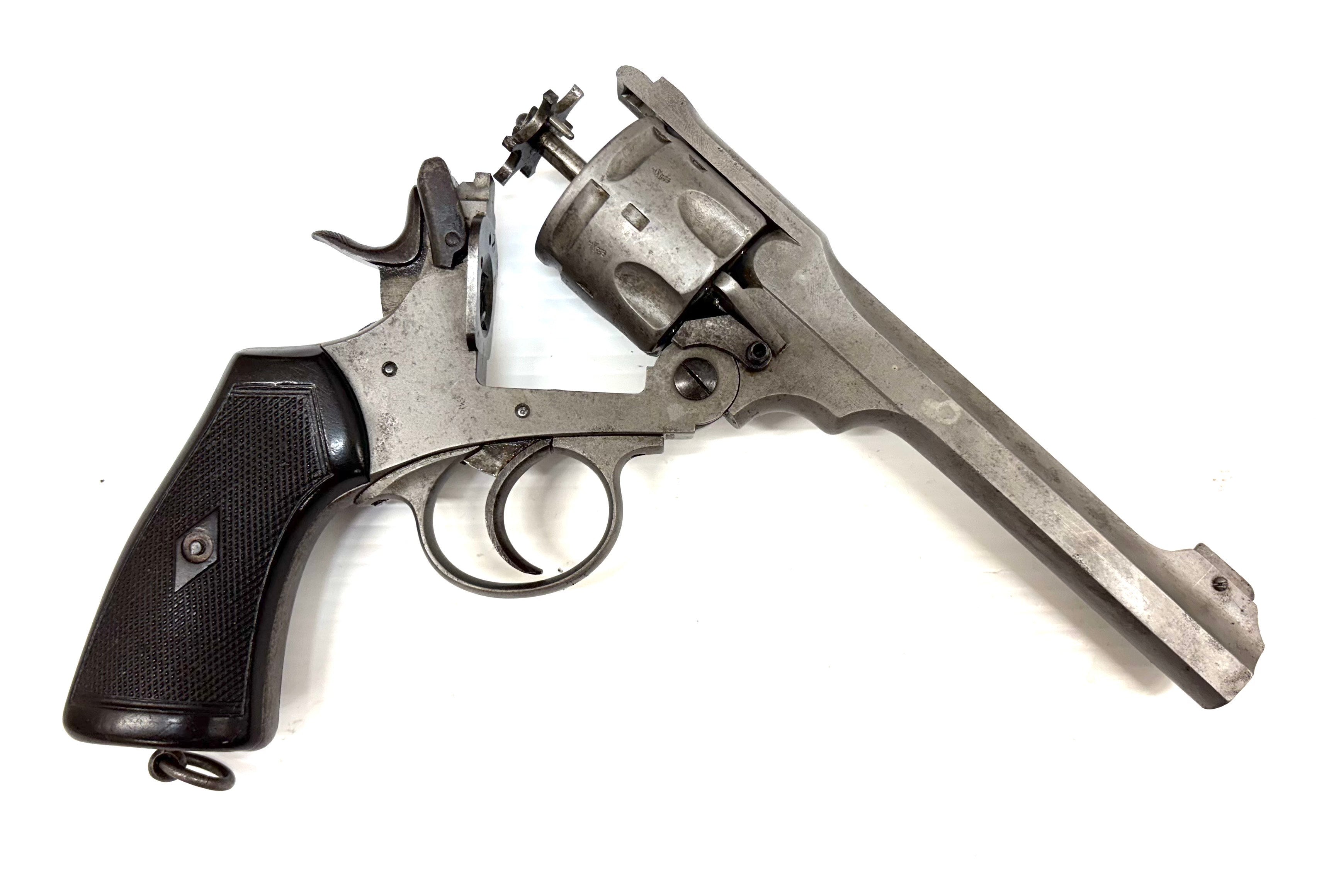
Webley Mark IV Revolver
This week for Firearm Friday we are bringing you the Webley Mark IV Revolver.

The Mark IV Webley was manufactured between 1899 and 1913. It was, in various designations, a standard issue service revolver for the armed forces of the United Kingdom, and countries of the British Empire and the Commonwealth of Nations, from 1887 to 1963.

The Webley is a top-break revolver and breaking the revolver operates the extractor, which removes cartridges from the cylinder. The Webley Mk I service revolver was adopted in 1887 and the Mk IV rose to prominence during the Boer War of 1899–1902. The Mk VI was introduced in 1915, during wartime, and is the best-known model.

Brothers Philip and James Webley of Birmingham, England, were both established firearms manufacturers by 1835, and after James' death in 1856 and the closure of Samuel Colt's London factory in 1857, Thomas William and Henry, entered and began production of factory-produced British handguns which featured interchangeable parts.

In 1887, Thomas William Webley obtained machinery suitable to mass produce firearms. An initial 1887 British government order for 10,000 P. Webley & Sons double-action top-break Mark I Revolvers cemented their name in the firearm industry. These six-shot auto ejectors with the distinctive bird's head butt and lanyard ring were chambered for the .455 Webley caliber ball cartridge, which remained the standard for Britain's military forces until after the Second World War. Modifications to the basic design in 1894 and 1897 led to the introduction of the Mark II and Mark III revolvers.

The Webley revolver went through a number of changes, culminating in the Mk VI, which was in production between 1915 and 1923. The large .455 Webley revolvers were retired in 1947, although the Webley Mk IV .38/200 remained in service until 1963 alongside the Enfield No. 2 Mk I revolver. Commercial versions of all Webley service revolvers were also sold on the civilian market.

The Webley Mk IV, chambered in .455 Webley, was introduced in 1899 and soon became known as the "Boer War Model", on account of the large numbers of officers and non-commissioned officers who purchased it on their way to take part in the conflict. The Webley Mk IV served alongside a large number of other handguns.

The standard-issue Webley revolver at the outbreak of the First World War was the Webley Mk V, but there were considerably more Mk IV revolvers in service in 1914, as the initial order for 20,000 Mk V revolvers had not been completed when hostilities began. They were issued first to officers, pipers and range takers, and later to airmen, naval crews, boarding parties, trench raiders, machine-gun teams, and tank crews. The Mk VI proved to be a very reliable and hardy weapon, well suited to the mud and adverse conditions of trench warfare, and several accessories were developed for the Mk VI, including a bayonet, speedloader devices and a stock allowing for the revolver to be converted into a carbine.

The official service pistol for the British military during the Second World War was the Enfield No. 2 Mk I .38/200 calibre revolver. Owing to a critical shortage of handguns, a number of other weapons were also adopted to alleviate the shortage. As a result, both the Webley Mk IV in .38/200 and Webley Mk VI in .455 calibre were issued to personnel during the war.

Whilst the top-break, self-extracting revolvers used by the British and other Commonwealth militaries are the best-known examples of Webley revolvers, the company produced a number of other highly popular revolvers largely intended for the police and civilian markets.

These include the Webley RIC (Royal Irish Constabulary), the British Bull Dog and the Webley-Fosbery Automatic Revolver.

The pictured Webley is part of our collection and we have many more Webley & Enfield revolvers on display















